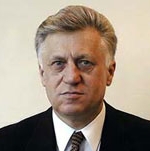Bela Lantos
He began his university studies at the Faculty of Electrical Engineering of the Budapest University of Technology (1959-1961), and eventually obtained a degree in electrical engineering abroad (NDK, 1965).
From 1965, he worked at the Department of Process Control (from 1998, Department of Control Engineering and Informatics, IIT) of the Faculty of Electrical Engineering (VIK) of the Budapest University of Technology (BME) as an assistant professor, assistant professor, then associate professor, and finally, between 1994 and 2011, he was a university professor, later professor emeritus.
In 1966, he participated in a three-month computer hardware and software course in Poland on a BME mission, after which he contributed to the launch of computer science education in the field of electrical engineering training at BME.
In 1986, the Department entrusted him with the management of the educational and research tasks of the field of robot control and robot intelligence; a robotics team was established to carry out these tasks. After that, his main educational areas became control theory, control of robots and autonomous vehicles, 3D image processing and artificial intelligence.
He also continuously gained industrial experience within the framework of the department's contractual work, essentially since 1967. Among these, the development of the results reporting system for the 1980 Moscow Olympics stands out, during which he was the supervisor of the development of the athletics results reporting software system.
He worked as a visiting researcher at the Informatics Research Center of the University of Karlsruhe (FZI Karlsruhe, FRZK) in the field of laser rangefinder image processing in 1987. He received his PhD in the field of optimum theory in 1976 and his PhD in robot control from the Hungarian Academy of Sciences in 1994.
He has continuously participated in the development of BME's VIK IT training, developing and presenting several BSc, MSc and PhD subjects.
He is a member of the Habilitation Committee and Doctoral Council (HBDT) of the BME VIK. He has supervised 17 candidates and PhDs.
Between 1998 and 2012, he was the supervisor of several national research projects at BME. Between 2013 and 2014, he was a research professor at the Automotive Research Center (JKK) of Széchenyi István University (SZE) in Győr.
Between 1999 and 2002, he received the Széchenyi Professor Scholarship and in 2002, the Charles Simonyi Research Scholarship.
He is the author of four Hungarian-language books (published by Akadémiai Kiadó) on the theory and design of robotics and control systems (1991, 2001, 2006, 2017), as well as an English-language textbook on fuzzy systems and genetic algorithms (2002); he is co-author of English-language books on modern robot control (1997) and on nonlinear control of vehicles and robots (Springer, 2011).
He is an elected member of the Automation and Computer Engineering Committee of the Hungarian Academy of Sciences and of three international technical committees of the International Federation of Automatic Control (IFAC) (Robotics, Optimal Control, Nonlinear Systems).
His awards: Albert Szent-Györgyi Award (Minister of Education, 2010), József Eötvös Wreath (MTA, 2011), Knight's Cross of the Order of Merit of the Republic of Hungary (2011).
Created: 2020.06.19. 16:36
Last modified: 2024.03.09. 09:37

